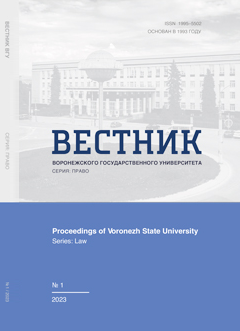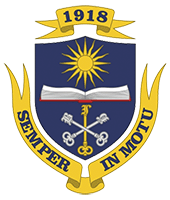Независимость судей в судебном администрировании
Аннотация
Рассматриваются организационно-административные, управленческие процессы в судебной системе, и неформальные практики внутрисудебного администрирования. Неочевидное влияние на независимость судей в процессе управления судом исследуется с учетом возможности самих судей реагировать на него. Проанализирована реальная возможность реализации судьями права на обращение в органы судейского сообщества в случае, когда председатель суда использует явно неэффективные методы руководства, влияющие на судейскую независимость. Сделан вывод о необходимости расширения способов и форм «обратной связи» между председателем суда, органами судейского сообщества и судьями со снижением в них элемента бюрократизации.
Скачивания
Литература
2. Alekseevskaya E. I. Modern concept of judicial management and his principles // Bulletin of Arbitration practice. 2021. No 1 (92). P. 17–24.
3. Volkov V., Dmitrieva A. Sources of recruitment, gender and professional subcultures in the Russian judicial system // Sociology of Power. 2015. Vol. 27, No 2. P. 94–134.
4. Yermoshin G. T. Organizational support of the court’s activities (judicial administration) in the context of the implementation of the principle of independence of the judiciary // Russian justice. 2005. No 3. P. 2–9.
5. Commentary on the Constitution of the Russian Federation / L. V. Lazarev [et al.] ; ed. by L. V. Lazarev. URL
6. Kudryashova A. V. On the administrative powers of the chairman of the district court and the need to improve their legal regulation // Bulletin of KGU. 2019. No 4. P. 166–169.
7. Lebedev V. M. Guarantees of judicial independence in the Russian Federation: concept, history of formation and current state // Journal of Russian Law. 2019. No 11. P. 5–24.
8. Makarova O. V. Institute of court chairmen as an element of the organization of the activity of courts of general jurisdiction // Journal of Russian Law. 2017. No 6 (246). P. 168–176.
9. Mamykin A. S., Latysheva N. A. Organizational and technical support of the activity of courts. M. : RGUP, 2020.
10. Mamykin A. S., Petukhov N. A. Judicial management (administration by courts): past, present, future // Russian justice. 2016. No 1. P. 22–42.
11. Marchenko M. N. Judicial power: main signs and features // Russian justice. 2007. No 5 (13). P. 4–17.
12. Medushevsky A. N. Constitutional monitoring: the program and results of the expert survey in Russia // Comparative Constitutional Review. 2013. No 6 (97). P. 43–54.
13. Mikhailovskaya I. B. Management processes in the judicial system. M. : Prospect, 2012. 12 p.
14. Mikhailovskaya I. B. Courts and judges: independence and manageability. M. : Prospect, 2021. 128 p.
15. Mishina E. A. Long shadows of the Soviet Past. M. : Liberal Mission Foundation, 2014. 180 p.
16. Morshakova T. G. Discussion “Judicial power in Russia is the least dangerous branch of government” // Monitoring of constitutional processes in Russia. Analytical bulletin. 2012. No 2 (4). P. 5–16.
17. Morshchakova T. G. Judicial management in international norms of “soft law” and Russian practices // Comparative Constitutional Review. 2017. No 1 (116). P. 81–94.
18. Neshataeva T. N. Independent court: from an international standard to implementation without imitations // Law. 2010. No 2. P. 47–60.
19. Neshataeva T. N. The Court and the protection of the rights and freedoms of citizens of the Russian Federation // Comparative Constitutional Review. 2004. No 4 (49). P. 129–133.
20. Peter H. Solomon Jr. The problem of independence and accountability of judges // Constitutional Bulletin. 2008. No 1 (19). P. 180–191.
21. Judicial power / T. E. Abova [et al.] ; ed. by I. L. Petrukhin. M. : LLC “TK Velbi”, 2003. 720 p.
22. Fokov A. P. Priorities of judicial power in the system of separation of powers // Scientific works of RALS. In 2 volumes. M. : Lawyer, 2002. Vol. 1. P. 690–700.










